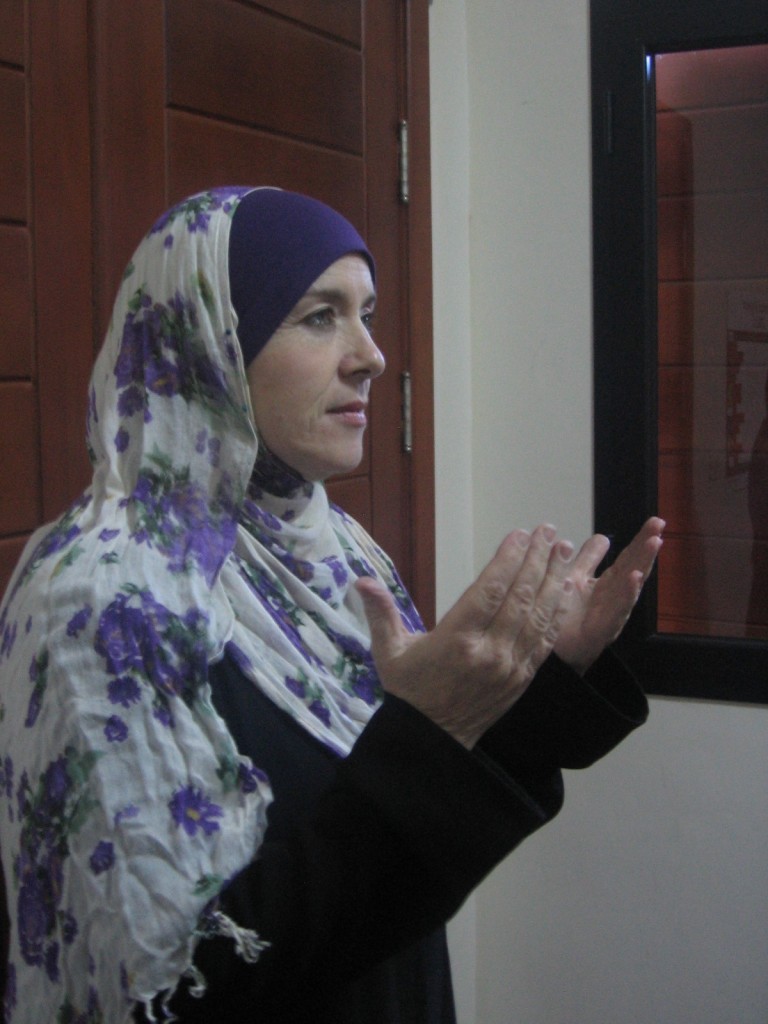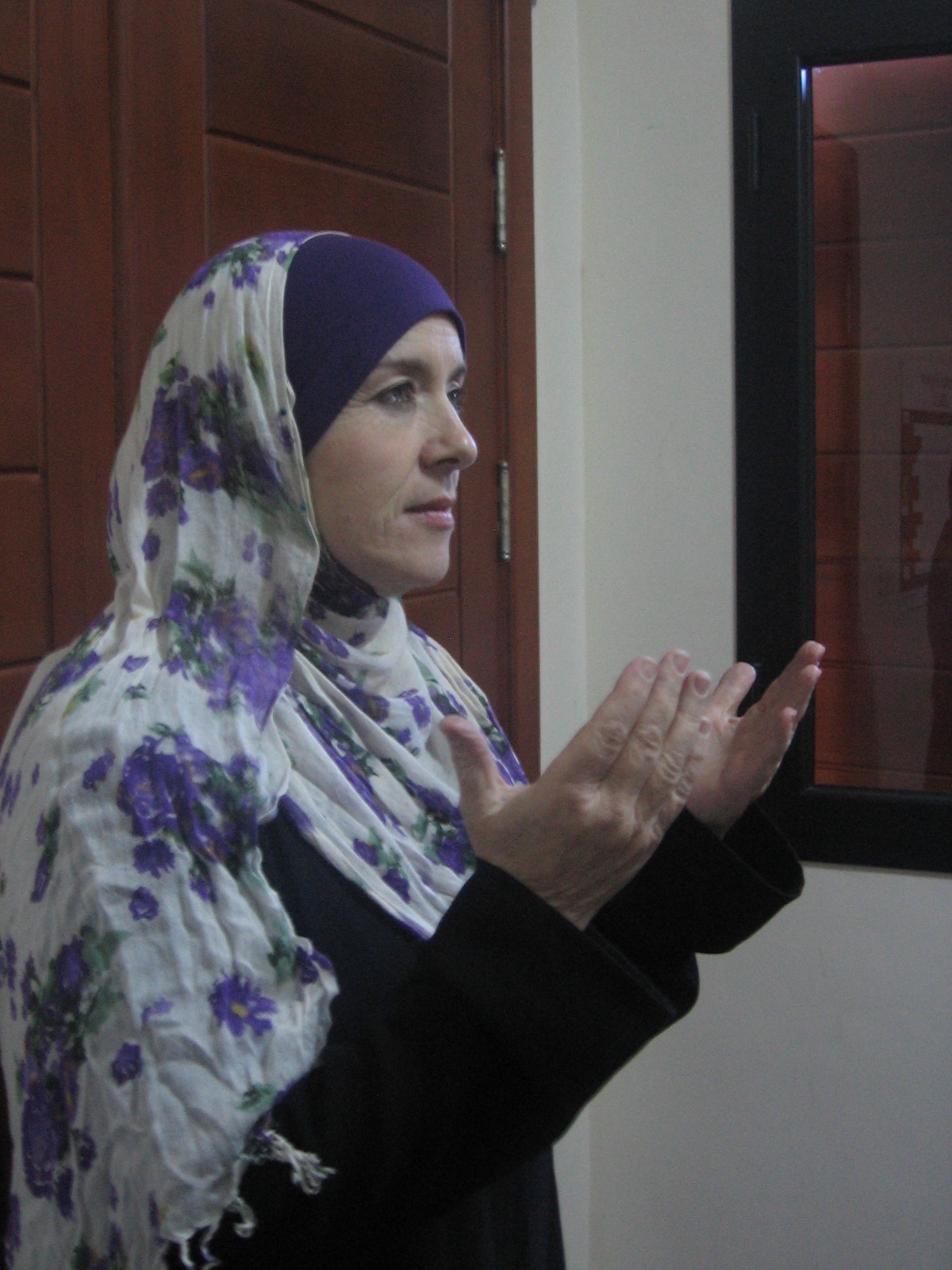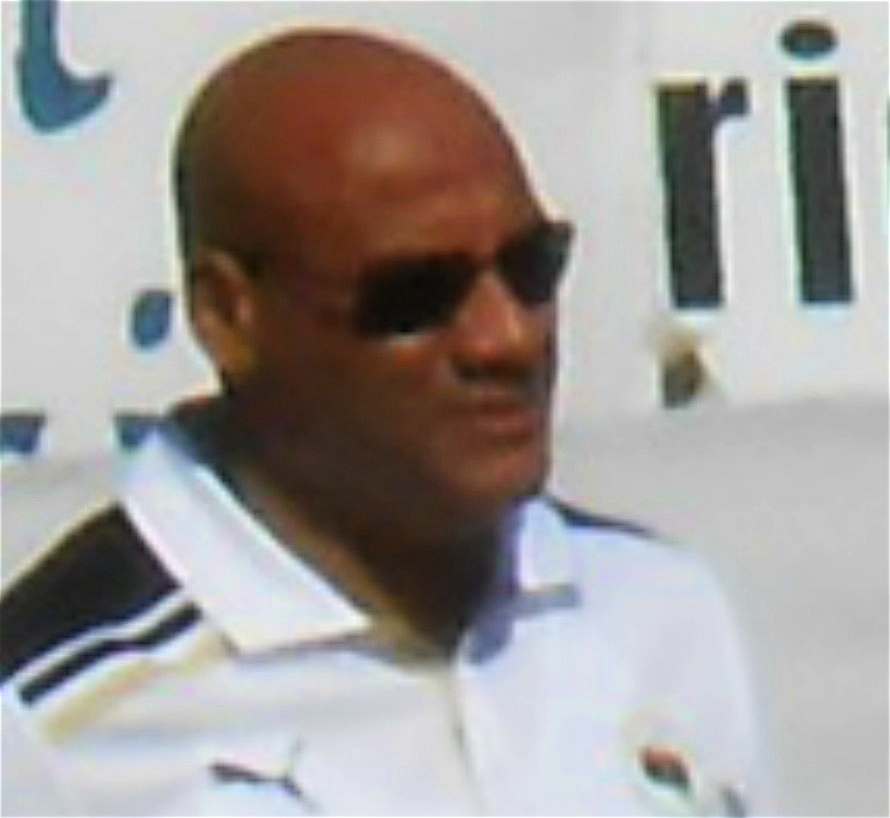By Luke Maginness.

Tripoli, 14 January, 2013:
Earlier this year Luke Maginness travelled to Libya to teach English but when he arrived he . . .[restrict]was astonished to find a couple of Dubliners fully integrated into the Islamic way of life
“I didn’t want to become a Muslim but I felt that God was telling me to” – Joanna Golden
It’s Libya – Qaddaffi, sand, oil, revolution, liberation and Lockerbie.
A typical African backwater: historically the plaything of numerous colonial powers; a pawn in that foolish game of world politics; a third world desert of a place; an archaic Muslim state itching to slip back into the Dark Ages.
Before moving to Libya in September to teach English this might have been my impression of Libya.
The last thing I expected to find was a large community of expatriate Irish living and thriving in the capital, Tripoli.
More surprising was the fact that many of the Irish living there were devout Muslims – living, working and worshipping among Libyans.
I set out to find why some of them had chosen to live here and found their tales fascinating. The first I encountered was Joanna Golden — or Rabia, as she has become since her conversion to Islam. She is a Dubliner who dresses in full Islamic garb, with fluent Arabic and an accent straight out of The Commitments.
Growing up in a working-class part of Dublin, Rabia was initially drawn to Catholicism. She became involved in the church in school, but a few years later had an epiphany. On her way to a mosque in Dublin’s north side to speak to a group of Muslims she became embroiled in a heated argument with an Islamic preacher.
The theme of the debate was the mistreatment of women in Islam. The preacher stood firm and pointed to the problems within the Catholic Church. This struck a chord with Rabia, who began to evaluate her own misgivings with Catholicism in tandem with an investigation of Islam. She visited the mosque numerous times and learnt about Islam with the help of the Islamic preacher.
At 17 she converted to Islam.
“I didn’t want to become a Muslim but I felt that God was telling me to,” Rabia recalled.
More dramatic still, marriage to her preacher opponent quickly followed, as did a new life in Libya.
Rabia now has a large family all raised in the Muslim faith. However, she has maintained a connection with her homeland, something which she has passed onto her children.
During the revolution that ousted Libyan dictator Muamar Qaddaffi in 2011 Rabia’s two sons, Yusef and Housam, played an integral role in the rebel Tripoli brigade’s fight to liberate the country. Elder son Housam was mainly raised in Dublin. He attended school there before Rabia moved with her family to Manchester in the UK and then on to Libya. Housam has spent a majority of his life in Dublin and thinks of himself as a Dubliner but saw it as a duty to fight for what he believed in.
When the revolution began Housam was in Dublin but felt compelled to help his people. He went to Libya and after joining the revolutionary forces in early 2011, he rose fast leading to his position as a reconnaissance leader for the Tripoli brigade of the revolutionary army.
His comrades nicknamed him ‘The Irish’.
Another Dubliner living in Tripoli is Patricia. She too converted to Islam at a young age after what she calls a moment of clarity. After watching a movie called the ‘The Message’ she was compelled to convert to a faith in which people would die for God. She became known as Safiyyah.
Like Rabia, talking to Safiyyah makes you feel as though you were standing on Grafton Street. Endearingly, that thick Dublin accent is accompanied by a hijab.
From the beginning of her conversion Safiyyah faced opposition and had to attend the mosque surreptitiously.
She walked to worship in disguise to avoid detection from her nine brothers who were vehemently opposed to her conversion.
Safiyyah has an especially close relationship with her mother. Her mother doting on her in a house full of men. She found it heart breaking concealing such an important part of her life from a person she loved deeply.
However, her mother was suspicious of Islam as she only knew Catholicism and she describes the difficulties concealing her arranged marriage to a Libyan man, along with her conversion to Islam, from her mother.
Eventually she moved to Libya and raised a family between Dublin and Tripoli.
For years her mother believed she lived in mud hut in Africa and practised black magic. Eventually, her mother visited her in Tajoura, a suburb of Tripoli, and was amazed to find that she not only lived in a house but had a swimming pool.
Amazingly, at the age of 86, Safiyyah’s mother decided that she too would convert to Islam.
Perhaps she felt it was necessary to hedge her bets as the Promised Land was close. Safiyyah maintains that she gently revealed the goodness of Islam and through her own love and devotion to the faith; her aged mother decided she could only share in this happiness through Islam.
This is Libya not as you have seen on the news but a thriving, modern Muslim country that is not as far from Ireland as you might expect.
[/restrict]










